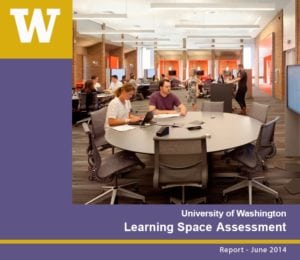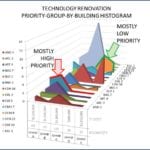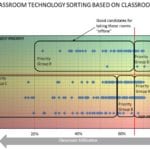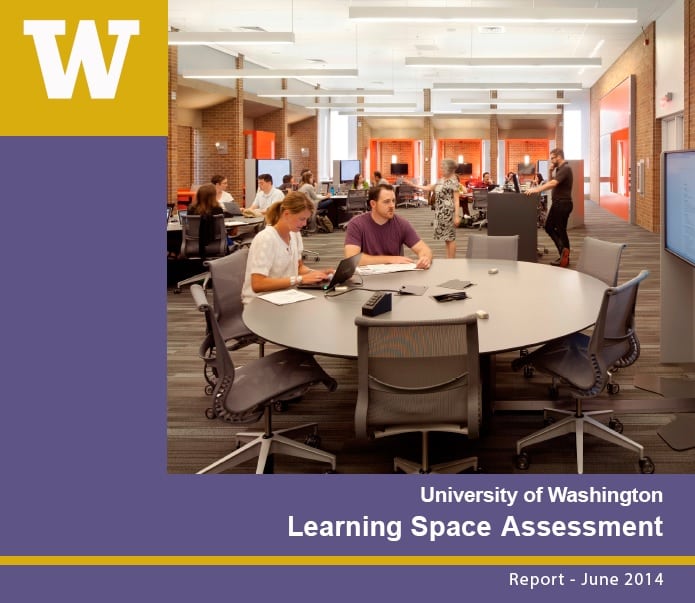
At the University of Washington (UW), a task force of key faculty and staff members and a multi-disciplinary team from Vantage Technology Consulting Group, Zimmer Gunsul Frasca Architects and Rickes Associates recently conducted a comprehensive evaluation of traditional classrooms, extended learning spaces and technology assets.
The result of this effort is UW’s just-released Learning Space Assessment (LSA) – a cutting-edge report that provides in-depth analysis of the University’s learning facilities, available educational technologies and options for future upgrades and enhancements.
The full LSA report is available online. To create it, the team was asked to:
- Evaluate current conditions and utilization rates for all of the University’s classrooms and learning spaces.
- Compare existing classrooms and learning spaces, technology and related institutional processes with UWs peer institutions.
- Provide structured recommendations to bring any noted issues into alignment with – or superior to – peer institutions within 5 – 7 years, and
- Provide a workable framework for refreshing and maintaining all campus technology.
“We’re good at this, and there is clearly a need. Many of the issues identified at UW…are also in play at other institutions and businesses.”
“This is strategic consulting at a very sophisticated level,” Rhoads added. “We understand the University’s culture and the educational environment it exists in. We draw from our extensive experience to identify and clarify important issues, provide analytical tools and define efficiencies. Ultimately, we were able to provide UW with the insights and tools it needed to establish a foundation for future planning.”“This was an important undertaking for UW,” said Vantage Principal Parke Rhoads, who spearheaded the project. “Educational institutions come to us with a broad spectrum of technology related issues, and this project is an excellent example of how we apply our expertise to provide the full range of analysis.
Additionally, the LSA provides a basis for promoting the university’s strengths to prospective students. By acting on the report’s recommendations, UW will enhance its reputation and increase its appeal to current and future scholars.

“It’s not at all abstract,” Rhoads said. “We’re working to improve learning outcomes, and that’s a measurable thing. Are students getting better grades? Are enrollments rising? Are graduates getting better jobs?”
Aware of the vital role technology plays in the modern educational environment, the task force carefully examined UW’s history of uneven technology-related funding, and the resulting backlog of deployment, replacement and maintenance that ensued.

The study concluded that, on a dollars-per-room basis, UW’s average spending on technology had lagged behind peer institutions. Technology upgrades, uniformity and establishment of clear standards will provide predictability and versatility for faculty, ease of maintenance for support staff and improved teaching capabilities across the board.
There are costs involved, of course. But, ironically, some of the LSA’s recommendations will result in significant savings for the University. For example, by evaluating classroom utilization and practical needs, the assessment identified roughly 100 classrooms that were both obsolete AND underutilized. Taking those unnecessary classrooms offline will save the university as much as $380,000 per year while improving the university’s deferred maintenance program.

“We’re good at this, and there is clearly a need. Many of the issues identified at UW, such as deferred maintenance and declining capabilities, are also in play at other institutions and businesses,” Rhoads said. “This study was instrumental in developing rational, implementable, affordable courses of action to ensure that classrooms and technology compare favorably to national standards. It will also help UW establish and maintain its place among the top tier of its peer institutions.”
The University of Washington’s full Learning Space Assessment is available here:

